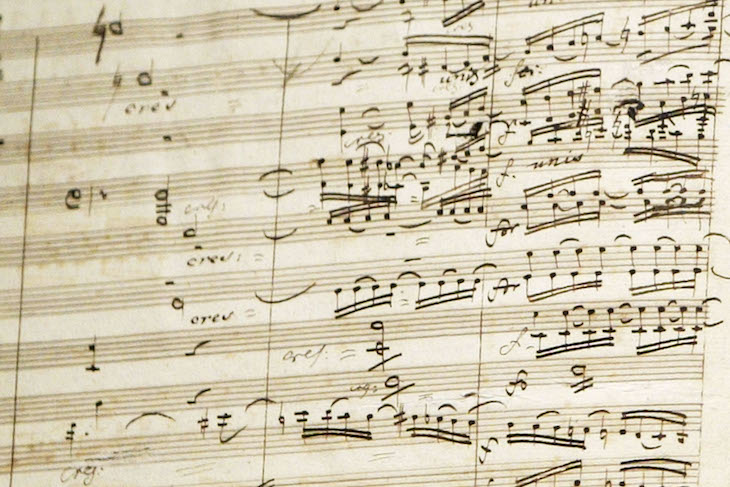Sir James MacMillan’s European Requiem, performed at the Proms on Sunday, isn’t about Brexit. The composer had to make this clear in a Radio 3 interview just before the broadcast, because the BBC was just itching to cast the work — a melancholy score, despite its thunderous drumbeats — as a lament for us leaving the EU.
That would have been neat, given that the second half of the concert consisted of Beethoven’s Ninth, whose ‘Ode to Joy’ has been clumsily appropriated by Brussels. Incidentally, some Remainers in the audience chattered through the symphony’s first three movements, impatient for their Big Tune. I don’t know if there were any ancient white Rhodesians in the Albert Hall, but if there were I bet they waited respectfully for their former national anthem: ‘Rise, O voices, of Rhodesia/God may we Thy bounty share …’
But I digress. The European Requiem was written before Brexit — and, in any case, MacMillan doesn’t identify Brussels with ‘Europe’. The piece is a lament, for sure. Rarely has the Latin liturgy sounded so bleak as in its great solos for baritone and counter-tenor, the grief further twisted by MacMillan’s trademark melismas (melodic ornaments stretching over one syllable). But this is a requiem for something much bigger: Europe’s Christian civilisation, made possible only by the arrival of St Peter in Rome.
It’s not, however, a purely religious memorial by the most overtly Catholic major composer since Messiaen. MacMillan was once a very left-wing Scottish socialist; he’s now a conservative who repudiates the Labour party and, even more vehemently, the clownish cultural fascism of the SNP. His European Requiem is inspired by Sir Roger Scruton’s book The Uses of Pessimism (2010), which identifies Christian forgiveness as a source of European freedom and accountability. Against this Scruton pits the mercilessly ‘optimistic’ ideologies of the 20th century, including multiculturalism, and ‘the most far-reaching piece of institutional folly that the free world currently witnesses, the European Union’.
Scruton deplores the fate of European nation states ‘snared in an expanding web of regulations’ drawn up by left-wing utopians. And MacMillan is so enthusiastic about the book that you can’t help wondering: has he written a requiem for a Christendom dismantled, in part, by the cultural relativism promoted so relentlessly by the BBC?
If so, he’s maintaining a diplomatic silence. The European Requiem was, after all, performed quite magnificently by the corporation’s Welsh orchestra as part of a legendary music festival curated and staged by the BBC. It would be churlish not to acknowledge that the Proms are rooted in European high culture — but naive not to recognise that those roots are withering.
Speaking over the applause, the Radio 3 announcer told us that ‘as a young man James MacMillan had a lot to say politically and his work was rather politically engaged but over time that has rather changed’. That’s nonsense, as a glance at MacMillan’s Twitter account will confirm: if anything he’s become even more politically engaged now that he’s turned his back on socialism. But the BBC can’t get its head round the notion of an internationally renowned composer who believes, as MacMillan does, that Europe needs defending from ‘the self-hating, elitist Left’ and ‘the incoming Islamofascist Right’. So it doesn’t try.
During the interval of Sunday’s concert we heard instead from the novelist Lawrence Norfolk, who moaned about being ‘turfed out’ of Europe by Brexit and confided that ‘the dirty secret of every conglomeration is that every “us” requires a “them”… Is it more important for us to be “us” or to be “not them”? My vote is us, all of us.’
My vote was for Eurofanatic creative types to stop hogging the airwaves with their lavishly offended sensibilities. Unfortunately the only way I could cast it was by turning off the radio station that had just broadcast a piece of gloriously subversive new music — but without realising it.







Comments